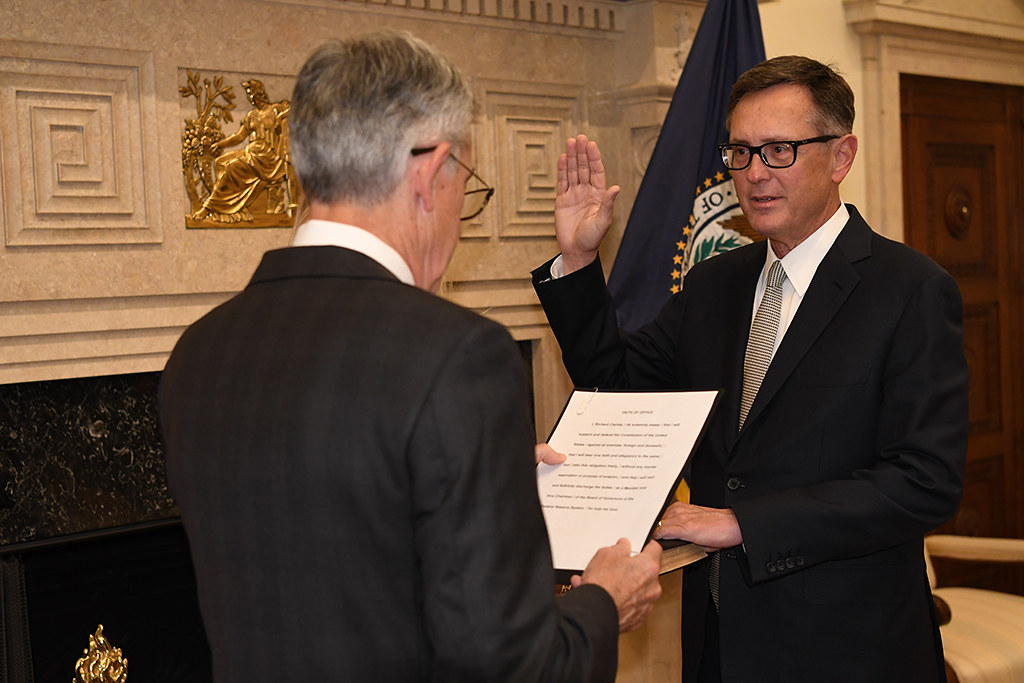Four months after news of Federal Reserve Regional bank presidents Robert Kaplan and Eric Rosengren’s pandemic-era trading activity first broke, the public almost certainly still does not know the full scope of the ethics crisis at the Federal Reserve. Most recently, The New York Times reported that Vice Chair Richard Clarida failed to record major financial transactions on his 2020 personal financial disclosure reports that occurred immediately prior to a February 2020 announcement that the Federal Reserve was ready to intervene in the event of an economic downturn. Those trades, disclosed in an amended disclosure form in December 2020, render the Federal Reserve’s prior claims that Clarida’s trading activity had been part of a pre-planned “rebalancing” implausible.
As Federal Reserve Chair Jerome Powell undergoes consideration for a second term, the public deserves thorough, straightforward answers to many outstanding questions about these scandals. Sadly, Federal Reserve officials’ conduct has cast doubt on the institution’s credibility to provide these answers. It is, therefore, critical that members of the media and of Congress seek independent answers.
Specifically, the public deserves to know:
- Are Federal Reserve officials’ disclosures complete and accurate? Judging by deficiencies in Kaplan, Clarida, and Powell’s disclosures, whatever system was in place to verify these reports was woefully inadequate. Have any changes been made to ensure that such gaps do not continue into the future?
- What, if any, changes to ethics enforcement have accompanied recent changes to the Federal Reserve’s internal ethics regulations? Much of the behavior that came under scrutiny during the recent scandals was already prohibited under existing standards that demanded Federal Reserve officials avoid even the appearance of a conflict of interest. Yet, it went undetected and unchecked.
- What steps have been taken to fix a regional bank president selection process that failed to detect at least two presidents’ flagrant ethical violations?
The Fed has shown that it is unwilling or unable to provide answers the public can trust.
- Federal Reserve officials’ characterization of Vice Chair Clarida’s February 2020 trades as pre-planned “rebalancing” appear to be inaccurate. A failure to comment or apologize for misleading the public only further undermines their credibility.
- As revealed by Revolving Door Project’s FOIA requests, Federal Reserve Chair Jerome Powell appears to have been lying when he told CNBC that he had received sign off from the Office of Government Ethics for his financial holdings during the pandemic.
- The Federal Reserve has characterized an I.G. investigation into the trading scandals as “independent” when, in reality, the Federal Reserve’s Inspector General is chosen by the board and can be fired by two-thirds of its members for any reason.
The Federal Reserve’s ethics program must undergo thorough scrutiny from credible, independent sources. Media outlets should seek answers to the above questions and apply due scrutiny to the Federal Reserve’s own characterizations of its action. Members of Congress should use their oversight powers to swiftly obtain documents and testimony from Federal Reserve officials.
PHOTO CREDIT: “Chair Powell swears in Vice Chairman Richard H. Clarida: DSC_3865” by Federalreserve is licensed under CC PDM 1.0

